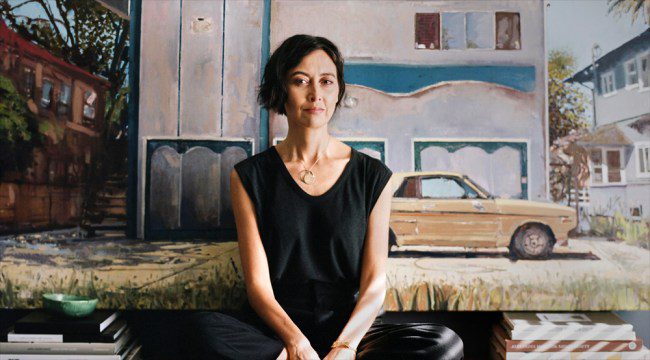From the instant familiarity of the kids on “Stranger Things,” to the African-American women marginalized by the 1970s Women’s Movement in “Mrs. America”; from the East Los Angeles queer and Latina communities of “Vida” to the vibrant tapestry of the Southside in “The Chi”; from the director-turned-showrunner crafted shows that push boundaries like “Sense8” and “The Knick” to comedian Nick Offerman as a Steve Jobs-like tech guru-meets-cult leader in “Devs.” So many shows that represent the fresh faces and boundless potential of television inclusivity have a common connection: They were cast by Carmen Cuba.
Talk to Cuba herself and she’ll tell you these are simply the projects she’s drawn to exploring. But talk to her showrunners and they paint a picture of a hands-on casting director with a deep philosophical connection to the material which she not only brings to life — but manages to expand upon their visions in an exciting and unexpected way.
“With Carmen, I always tease and joke that she’s the co-writer of the pilot,” said Lena Waithe, who collaborated with Cuba on “The Chi,” “because her choices for the casting affected the way I adjust things in my script and during the season.” It’s a common refrain from the TV creators who have worked with Cuba, many of whom say they significantly altered their original views for characters based on her input.
Just as each creator is different, so is the nature of each of Cuba’s collaborations. With Steven Soderbergh, who she has worked with for two decades, Cuba knows the kind of energy and actor he likes to work with and who he’ll trust on set. When working with Lana Wachowski, (“Sense8” and “Matrix 4”) deep philosophical conversations, not only about the script but life, business, and art, inform her approach to casting. The Duffer Brothers (“Stranger Things”) like to audition many candidates, and so Cuba has established a playful process of sending them actors completely not right for a role, knowing it will inspire them.
“Vida” showrunner Tanya Saracho and Cuba developed an ongoing dialogue about the intersectional worlds of art, culture, and activism. Saracho recalls their first meeting, with Cuba pointing out the “Vida” creator’s resemblance to Cuba’s sister, Natasha, who had passed away. The two share a deep bond that extends beyond show creation. “She believes in spiritual journeys,” Saracho said, “and she’s been my guide for a lot of those.”
Carmen Cuba with the cast of “Stranger Things”
For a showrunner like Saracho attempting to get her first series off-the-ground, having that type of spiritual guide is invaluable — the pilot process being a meat grinder that flattens new voices who dare to dream of diverse casts with fresh approaches.
For example, Saracho had a specific actor in mind for the character of Johnny. “I was convinced that was the person,” she said. “But she saw the battle that was happening with the network and with a producer,” so Cuba strategically — and to Saracho’s eventual benefit — suggested actor Carlos Miranda.
Though Saracho had made up her mind, Cuba said Saracho should work with both Miranda and the actor Saracho initially wanted. Because Cuba regularly has conversations with the actors she’s casting, letting the camera run as they talk, Saracho soon learned Miranda, at the time, was homeless. It helped Saracho reconfigure her thinking and she eventually cast him in the role.
To cast Miranda is to espouse exactly what the series focuses on. Miranda is a living reflection of the show’s exploration of societal factors and the struggles of a community itself. That Cuba was able to see Miranda’s potential to breathe life into “Vida” is what makes her such a unique talent. As Cuba’s mentor, casting director Margery Simkin said, it is her “discernment and tenacity” that gets the job done.
Cuba was raised in a veritable melting pot of environments. Her Peruvian father was a member of the United Nations; she spent much of her time in Peru and Bolivia, and she was briefly the only non-Navajo student on a Navajo reservation. When her parents divorced, she found herself growing up in a small Mormon community, the only place her single public school teacher mother could get a job. In her teens, she was one of only a few kids in one of three bilingual repertory theater groups (La Compania De Teatro De Albuquerque, which was led by an HIV positive openly gay man) in the country at the time, and spent years working in every aspect of putting on a production.
Knowing that sense of “otherness,” and the personal experience that comes from being an outsider, has resulted in her work feeling attuned to the margins. There’s an awareness of the struggles actors of color already know and when the deck is stacked against you, it’s important to have someone on your side — and that’s where Cuba comes in.
This is also where Cuba’s journalism degree and early career as a reporter for Univision has played a role – she has a sense of curiosity and love of searching for answers she carries over to casting. And, of course, research: studying the culture of different locations, exploring non-actors who might bring an interesting perspective to the role, and keeping on top of communities that are underrepresented onscreen.
You can see the results in the tapestry of characters Cuba constructs onscreen. Be it the street casting of “The Florida Project,” or “Guava Island,” or constructing a multi-generational cast that feels like a collection of Southside families in “The Chi,” the process is one “Mrs. America” creator Dahvi Waller aptly referred to as “holistic.”
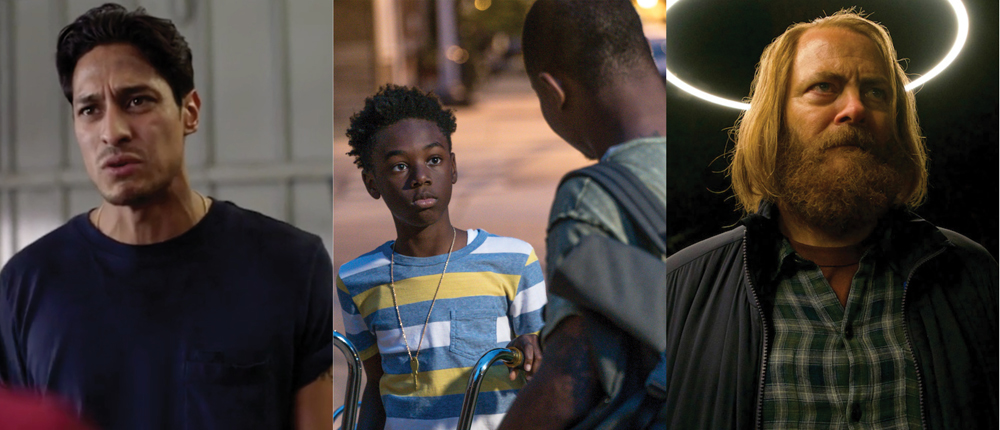 “Vida,” “The Chi,” “Devs”
“Vida,” “The Chi,” “Devs”
But for all Cuba’s strength in seeking untested talent, she has just as much of a proven track record when it comes to reconfiguring an established actor’s persona. As Alex Garland, creator of “Devs,” said: “I would never have met or thought of Nick Offerman without her, and now I can’t imagine the show without him.”
For Garland, “Carmen thinks about casting in a very complete, very nuanced way. She’s incredibly clear-headed, and she always had an eye on the overall balance and tone, as well as granular specifics about what a particular actor would bring.” For “Mrs. America,” Cuba fought hard for comedic actress Tracey Ullman to tackle the role of feminist Betty Friedan. “[She] totally got how her background in comedy was such an asset to the role,” Waller said.
Similarly, in building the 1980s for the Duffers, Cuba pushed hard to cast Winona Ryder, playing on the actress’ own background of teen roles. Combined with making a character actor like David Harbour a lead — and a collection of diverse child actors who naturally felt like one of those groups of friends that defined the Spielberg popcorn era of PG movies — the casting director built something so familiar, and eventually iconic, from components that were unexpected.
Cuba’s approaches are as varied and inventive as the creators who rely on her judgment, with all of them looking beyond what is obvious or what’s been done before. “Authenticity” and “diversity” are buzz words often thrown around the world of casting, but few casting directors have their mind, heart, and eye so attuned to the world around them, seeing the full potential of what a more representative face of TV can actually look like. –Kristen Lopez
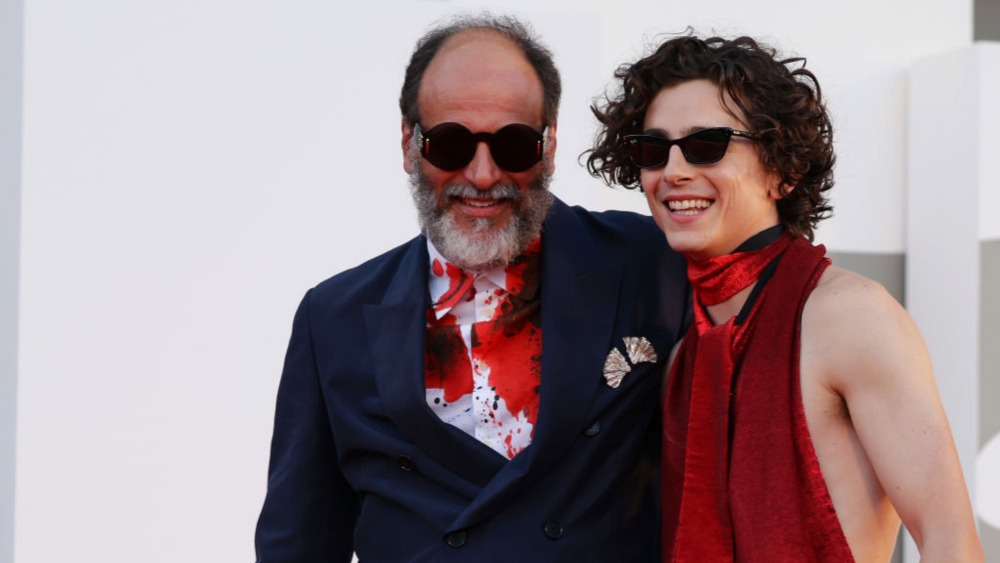 Luca Guadagnino & Timothée Chalamet
Luca Guadagnino & Timothée Chalamet
With “Bones and All,” the director and star of “Call Me by Your Name” continue to give each other the space to be bolder, darker, and more vulnerable.
December 1, 2022 12:08 pm
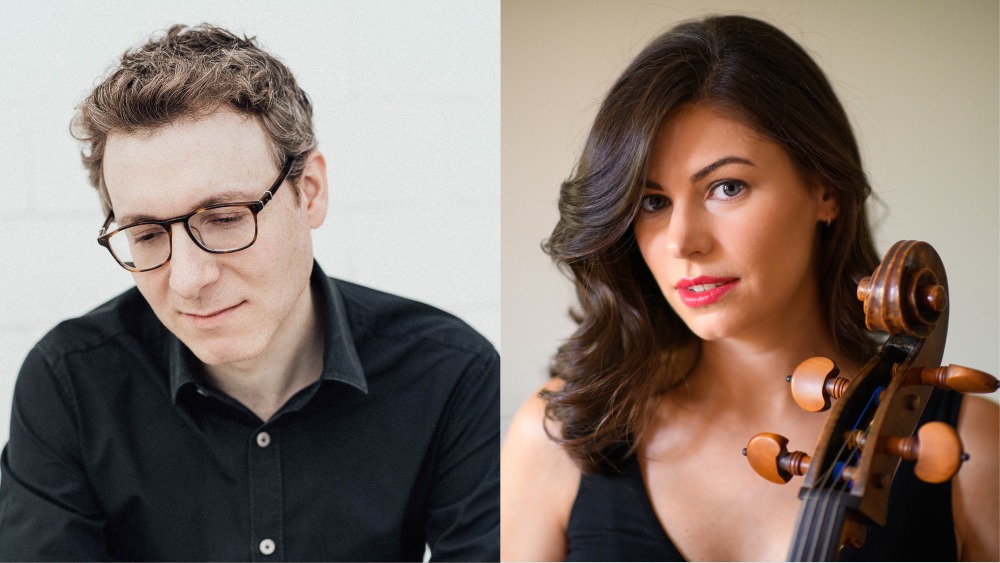 Nicholas Britell & Cellist Caitlin Sullivan
Nicholas Britell & Cellist Caitlin Sullivan
“She Said” and “Succession” composer Britell says he knows he’s on the right track when Sullivan pokes her head into the couple’s home studio.
November 18, 2022 2:17 pm
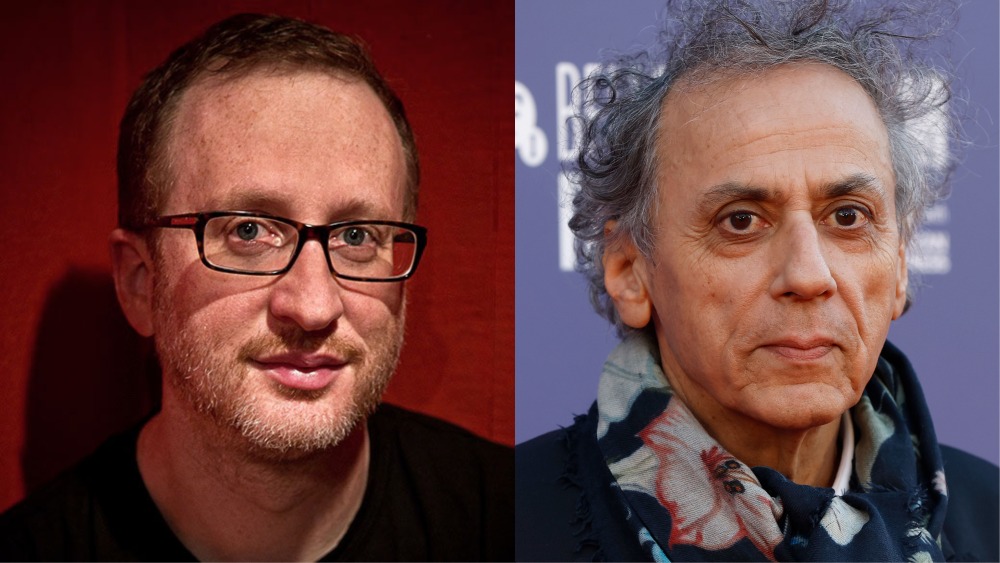 James Gray & Cinematographer Darius Khondji
James Gray & Cinematographer Darius Khondji
What’s the collaborative process behind “The Immigrant,” “Armageddon Time,” and “The Lost City of Z”? “No conversation. Just sharing paintings.”
November 10, 2022 11:00 am
Source link : https://www.indiewire.com/influencers/stranger-things-casting-director-carmen-cuba/
Author :
Publish date : 2020-06-22 11:33:07
Copyright for syndicated content belongs to the linked Source.

